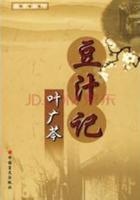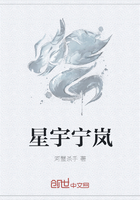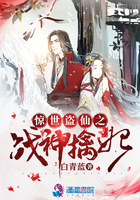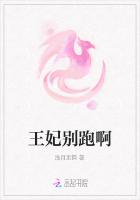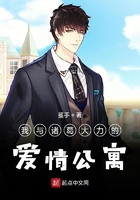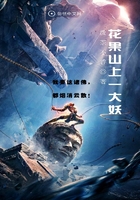We now seated ourselves upon a rock, and began to examine into our personal property. When we reached the shore after being wrecked, my companions had taken off part of their clothes and spread them out in the sun to dry; for although the gale was raging fiercely, there was not a single cloud in the bright sky. They had also stripped off most part of my wet clothes and spread them also on the rocks. Having resumed our garments, we now searched all our pockets with the utmost care, and laid their contents out on a flat stone before us; and now that our minds were fully alive to our condition, it was with no little anxiety that we turned our several pockets inside out in order that nothing might escape us. When all was collected together, we found that our worldly goods consisted of the following articles:
First, a small penknife with a single blade, broken off about the middle and very rusty, besides having two or three notches on its edge. (Peterkin said of this, with his usual pleasantry, that it would do for a saw as well as a knife, which was a great advantage.) Second, an old German-silver pencil-case without any lead in it. Third, a piece of whip-cord about six yards long. Fourth, a sailmaker's needle of a small size. Fifth, a ship's telescope, which I happened to have in my hand at the time the ship struck, and which I had clung to firmly all the time I was in the water; indeed, it was with difficulty that Jack got it out of my grasp when I was lying insensible on the shore. I cannot understand why I kept such a firm hold of this telescope. They say that a drowning man will clutch at a straw. Perhaps it may have been some such feeling in me, for I did not know that it was in my hand at the time we were wrecked. However, we felt some pleasure in having it with us now--although we did not see that it could be of much use to us, as the glass at the small end was broken to pieces. Our sixth article was a brass ring which Jack always wore on his little finger. I never understood why he wore it; for Jack was not vain of his appearance, and did not seem to care for ornaments of any kind. Peterkin said, "it was in memory of the girl he left behind him!" But as he never spoke of this girl to either of us, I am inclined to think that Peterkin was either jesting or mistaken. In addition to these articles, we had a little bit of tinder and the clothes on our backs. These last were as follows:
Each of us had on a pair of stout canvas trousers and a pair of sailors' thick shoes. Jack wore a red flannel shirt, a blue jacket, and a red Kilmarnock bonnet or nightcap, besides a pair of worsted socks, and a cotton pocket-handkerchief with sixteen portraits of Lord Nelson printed on it and a union-jack in the middle. Peterkin had on a striped flannel shirt--which he wore outside his trousers and belted round his waist, after the manner of a tunic--and a round black straw hat. He had no jacket, having thrown it off just before we were cast into the sea; but this was not of much consequence, as the climate of the island proved to be extremely mild--so much so, indeed, that Jack and I often preferred to go about without our jackets. Peterkin had also a pair of white cotton socks and a blue handkerchief with white spots all over it. My own costume consisted of a blue flannel shirt, a blue jacket, a black cap, and a pair of worsted socks, besides the shoes and canvas trousers already mentioned. This was all we had, and besides these things we had nothing else; but when we thought of the danger from which we had escaped, and how much worse off we might have been had the ship struck on the reef during the night, we felt very thankful that we were possessed of so much, although, I must confess, we sometimes wished that we had had a little more.
While we were examining these things and talking about them, Jack suddenly started and exclaimed:
"The oar! We have forgotten the oar!"
"What good will that do us?" said Peterkin. "There's wood enough on the island to make a thousand oars."
"Ay, lad," replied Jack; "but there's a bit of hoop-iron at the end of it, and that may be of much use to us."
"Very true," said I; "let us go fetch it." And with that we all three rose and hastened down to the beach. I still felt a little weak from loss of blood, so that my companions soon began to leave me behind; but Jack perceived this, and, with his usual considerate good-nature, turned back to help me. This was now the first time that I had looked well about me since landing, as the spot where I had been laid was covered with thick bushes, which almost hid the country from our view. As we now emerged from among these and walked down the sandy beach together, I cast my eyes about, and truly my heart glowed within me and my spirits rose at the beautiful prospect which I beheld on every side. The gale had suddenly died away, just as if it had blown furiously till it dashed our ship upon the rocks, and had nothing more to do after accomplishing that. The island on which we stood was hilly, and covered almost everywhere with the most beautiful and richly coloured trees, bushes, and shrubs, none of which I knew the names of at that time--except, indeed, the cocoa-nut palms, which I recognised at once from the many pictures that I had seen of them before I left home. A sandy beach of dazzling whiteness lined this bright-green shore, and upon it there fell a gentle ripple of the sea. This last astonished me much, for I recollected that at home the sea used to fall in huge billows on the shore long after a storm had subsided. But on casting my glance out to sea the cause became apparent. About a mile distant from the shore I saw the great billows of the ocean rolling like a green wall, and falling with a long, loud roar upon a low coral reef, where they were dashed into white foam and flung up in clouds of spray. This spray sometimes flew exceedingly high, and every here and there a beautiful rainbow was formed for a moment among the falling drops. We afterwards found that this coral reef extended quite round the island, and formed a natural breakwater to it. Beyond this, the sea rose and tossed violently from the effects of the storm; but between the reef and the shore it was as calm and as smooth as a pond.
My heart was filled with more delight than I can express at sight of so many glorious objects, and my thoughts turned suddenly to the contemplation of the Creator of them all. I mention this the more gladly, because at that time, I am ashamed to say, I very seldom thought of my Creator, although I was constantly surrounded by the most beautiful and wonderful of His works. I observed, from the expression of my companion's countenance, that he too derived much joy from the splendid scenery, which was all the more agreeable to us after our long voyage on the salt sea. There the breeze was fresh and cold; but here it was delightfully mild, and when a puff blew off the land it came laden with the most exquisite perfume that can be imagined. While we thus gazed we were startled by a loud "Huzza!" from Peterkin, and on looking towards the edge of the sea we saw him capering and jumping about like a monkey, and ever and anon tugging with all his might at something that lay upon the shore.
"What an odd fellow he is, to be sure!" said Jack, taking me by the arm and hurrying forward. "Come, let us hasten to see what it is."
"Here it is, boys--hurrah! Come along! Just what we want!" cried Peterkin as we drew near, still tugging with all his power. "First-rate; just the very ticket!"
I need scarcely say to my readers that my companion Peterkin was in the habit of using very remarkable and peculiar phrases. And I am free to confess that I did not well understand the meaning of some of them--such, for instance, as "the very ticket;" but I think it my duty to recount everything relating to my adventures with a strict regard to truthfulness in as far as my memory serves me, so I write, as nearly as possible, the exact words that my companions spoke. I often asked Peterkin to explain what he meant by "ticket," but he always answered me by going into fits of laughter. However, by observing the occasions on which he used it, I came to understand that it meant to show that something was remarkably good or fortunate.
On coming up we found that Peterkin was vainly endeavouring to pull the axe out of the oar into which, it will be remembered, Jack struck it while endeavouring to cut away the cordage among which it had become entangled at the bow of the ship. Fortunately for us, the axe had remained fast in the oar, and even now all Peterkin's strength could not draw it out of the cut.
"Ah, that is capital indeed!" cried Jack, at the same time giving the axe a wrench that plucked it out of the tough wood. "How fortunate this is! It will be of more value to us than a hundred knives, and the edge is quite new and sharp."
"I'll answer for the toughness of the handle, at any rate!" cried Peterkin; "my arms are nearly pulled out of the sockets. But see here, our luck is great. There is iron on the blade." He pointed to a piece of hoop-iron as he spoke, which had been nailed round the blade of the oar to prevent it from splitting.
This also was a fortunate discovery. Jack went down on his knees, and with the edge of the axe began carefully to force out the nails. But as they were firmly fixed in, and the operation blunted our axe, we carried the oar up with us to the place where we had left the rest of our things, intending to burn the wood away from the iron at a more convenient time.
"Now, lads," said Jack after we had laid it on the stone which contained our little all, "I propose that we should go to the tail of the island, where the ship struck, which is only a quarter of a mile off; and see if anything else has been thrown ashore. I don't expect anything, but it is well to see. When we get back here it will be time to have our supper and prepare our beds."
"Agreed!" cried Peterkin and I together, as, indeed, we would have agreed to any proposal that Jack made; for, besides his being older and much stronger and taller than either of us, he was a very clever fellow, and, I think, would have induced people much older than himself to choose him for their leader, especially if they required to be led on a bold enterprise.
Now as we hastened along the white beach, which shone so brightly in the rays of the setting sun that our eyes were quite dazzled by its glare, it suddenly came into Peterkin's head that we had nothing to eat except the wild berries which grew in profusion at our feet.
"What shall we do, Jack?" said he with a rueful look. "Perhaps they may be poisonous!"
"No fear," replied Jack confidently. "I have observed that a few of them are not unlike some of the berries that grow wild on our own native hills. Besides, I saw one or two strange birds eating them just a few minutes ago, and what won't kill the birds won't kill us. But look up there, Peterkin," continued Jack, pointing to the branched head of a cocoa-nut palm. "There are nuts for us in all stages."
"So there are!" cried Peterkin, who, being of a very unobservant nature, had been too much taken up with other things to notice anything so high above his head as the fruit of a palm-tree. But whatever faults my young comrade had, he could not be blamed for want of activity or animal spirits. Indeed, the nuts had scarcely been pointed out to him when he bounded up the tall stem of the tree like a squirrel, and in a few minutes returned with three nuts, each as large as a man's fist.
"You had better keep them till we return," said Jack. "Let us finish our work before eating."
"So be it, captain; go ahead!" cried Peterkin, thrusting the nuts into his trousers pocket. "In fact, I don't want to eat just now; but I would give a good deal for a drink. Oh, that I could find a spring! but I don't see the smallest sign of one hereabouts. I say, Jack, how does it happen that you seem to be up to everything? You have told us the names of half-a-dozen trees already, and yet you say that you were never in the South Seas before."
"I'm not up to everything, Peterkin, as you'll find out ere long," replied Jack with a smile; "but I have been a great reader of books of travel and adventure all my life, and that has put me up to a good many things that you are, perhaps, not acquainted with."
"Oh, Jack, that's all humbug! If you begin to lay everything to the credit of books, I'll quite lose my opinion of you," cried Peterkin with a look of contempt. "I've seen a lot o' fellows that were always poring over books, and when they came to try to do anything, they were no better than baboons!"
"You are quite right," retorted Jack; "and I have seen a lot of fellows, who never looked into books at all, who knew nothing about anything except the things they had actually seen, and very little they knew even about these. Indeed, some were so ignorant that they did not know that cocoa-nuts grew on cocoa-nut trees!"
I could not refrain from laughing at this rebuke, for there was much truth in it as to Peterkin's ignorance.
"Humph! maybe you're right," answered Peterkin; "but I would not give tuppencefor a man of books if he had nothing else in him."
"Neither would I," said Jack; "but that's no reason why you should run books down, or think less of me for having read them. Suppose, now, Peterkin, that you wanted to build a ship, and I were to give you a long and particular account of the way to do it, would not that be very useful?"
"No doubt of it," said Peterkin, laughing.
"And suppose I were to write the account in a letter instead of telling you in words, would that be less useful?"
"Well--no, perhaps not."
"Well, suppose I were to print it and send it to you in the form of a book, would it not be as good and useful as ever?"
"Oh, bother! Jack, you're a philosopher, and that's worse than anything!" cried Peterkin with a look of pretended horror.
"Very well, Peterkin, we shall see," returned Jack, halting under the shade of a cocoa-nut tree. "You said you were thirsty just a minute ago. Now jump up that tree and bring down a nut--not a ripe one; bring a green, unripe one."
Peterkin looked surprised, but seeing that Jack was in earnest, he obeyed.
"Now cut a hole in it with your penknife and clap it to your mouth, old fellow," said Jack.
Peterkin did as he was directed, and we both burst into uncontrollable laughter at the changes that instantly passed over his expressive countenance. No sooner had he put the nut to his mouth, and thrown back his head in order to catch what came out of it, than his eyes opened to twice their ordinary size with astonishment, while his throat moved vigorously in the act of swallowing. Then a smile and a look of intense delight overspread his face, except, indeed, the mouth, which, being firmly fixed to the hole in the nut, could not take part in the expression; but he endeavoured to make up for this by winking at us excessively with his right eye. At length he stopped, and drawing a long breath, exclaimed:
"Nectar! perfect nectar!--I say, Jack, you're a Briton--the best fellow I ever met in my life--Only taste that!" said he, turning to me and holding the nut to my mouth. I immediately drank, and certainly I was much surprised at the delightful liquid that flowed copiously down my throat. It was extremely cool, and had a sweet taste, mingled with acid; in fact, it was the likest thing to lemonade I ever tasted, and was most grateful and refreshing. I handed the nut to Jack, who, after tasting it, said, "Now, Peterkin, you unbeliever! I never saw or tasted a cocoa-nut in my life before, except those sold in shops at home; but I once read that the green nuts contain that stuff; and you see it is true."
"And, pray," asked Peterkin, "what sort of 'stuff' does the ripe nut contain?"
"A hollow kernel," answered Jack, "with a liquid like milk in it; but it does not satisfy thirst so well as hunger. It is very wholesome food, I believe."
"Meat and drink on the same tree!" cried Peterkin; "washing in the sea, lodging on the ground--and all for nothing! My dear boys, we're set up for life! It must be the ancient Paradise--hurrah!" and Peterkin tossed his straw hat in the air and ran along the beach, hallooing like a madman with delight.
We afterwards found, however, that these lovely islands were very unlike Paradise in many things. But more of this in its proper place.
We had now come to the point of rocks on which the ship had struck, but did not find a single article, although we searched carefully among the coral rocks, which at this place jutted out so far as nearly to join the reef that encircled the island. Just as we were about to return, however, we saw something black floating in a little cove that had escaped our observation. Running forward, we drew it from the water, and found it to be a long, thick, leather boot, such as fishermen at home wear; and a few paces farther on, we picked up its fellow. We at once recognised these as having belonged to our captain, for he had worn them during the whole of the storm in order to guard his legs from the waves and spray that constantly washed over our decks. My first thought on seeing them was that our dear captain had been drowned; but Jack soon put my mind more at rest on that point by saying that if the captain had been drowned with the boots on, he would certainly have been washed ashore along with them, and that he had no doubt whatever he had kicked them off while in the sea that he might swim more easily.
Peterkin immediately put them on; but they were so large that, as Jack said, they would have done for boots, trousers, and vest too. I also tried them; but although I was long enough in the legs for them, they were much too large in the feet for me. So we handed them to Jack, who was anxious to make me keep them; but as they fitted his large limbs and feet as if they had been made for him, I would not hear of it, so he consented at last to use them. I may remark, however, that Jack did not use them often, as they were extremely heavy.
It was beginning to grow dark when we returned to our encampment; so we put off our visit to the top of a hill till next day, and employed the light that yet remained to us in cutting down a quantity of boughs and the broad leaves of a tree of which none of us knew the name. With these we erected a sort of rustic bower, in which we meant to pass the night. There was no absolute necessity for this, because the air of our island was so genial and balmy that we could have slept quite well without any shelter; but we were so little used to sleeping in the open air that we did not quite relish the idea of lying down without any covering over us. Besides, our bower would shelter us from the night-dews or rain, if any should happen to fall. Having strewed the floor with leaves and dry grass, we bethought ourselves of supper.
But it now occurred to us, for the first time, that we had no means of making a fire.
"Now, there's a fix! What shall we do?" said Peterkin, while we both turned our eyes to Jack, to whom we always looked in our difficulties. Jack seemed not a little perplexed.
"There are flints enough, no doubt, on the beach," said he; "but they are of no use at all without a steel. However, we must try." So saying, he went to the beach, and soon returned with two flints. On one of these he placed the tinder, and endeavoured to ignite it; but it was with great difficulty that a very small spark was struck out of the flints, and the tinder, being a bad, hard piece, would not catch. He then tried the bit of hoop-iron, which would not strike fire at all; and after that the back of the axe, with no better success. During all these trials Peterkin sat with his hands in his pockets, gazing with a most melancholy visage at our comrade, his face growing longer and more miserable at each successive failure.
"Oh dear!" he sighed; "I would not care a button for the cooking of our victuals--perhaps they don't need it--but it's so dismal to eat one's supper in the dark, and we have had such a capital day that it's a pity to finish off in this glum style. Oh, I have it!" he cried, starting up: "the spy-glass--the big glass at the end is a burning-glass!"
"You forget that we have no sun," said I.
Peterkin was silent. In his sudden recollection of the telescope he had quite overlooked the absence of the sun.
"Ah, boys, I've got it now!" exclaimed Jack, rising and cutting a branch from a neighbouring bush, which he stripped of its leaves. "I recollect seeing this done once at home. Hand me the bit of whip-cord." With the cord and branch Jack soon formed a bow. Then he cut a piece about three inches long off the end of a dead branch, which he pointed at the two ends. Round this he passed the cord of the bow, and placed one end against his chest, which was protected from its point by a chip of wood; the other point he placed against the bit of tinder, and then began to saw vigorously with the bow, just as a blacksmith does with his drill while boring a hole in a piece of iron. In a few seconds the tinder began to smoke; in less than a minute it caught fire; and in less than a quarter of an hour we were drinking our lemonade and eating cocoa-nuts round a fire that would have roasted an entire sheep, while the smoke, flames, and sparks flew up among the broad leaves of the overhanging palm-trees, and cast a warm glow upon our leafy bower.
That night the starry sky looked down through the gently rustling trees upon our slumbers, and the distant roaring of the surf upon the coral reef was our lullaby.


